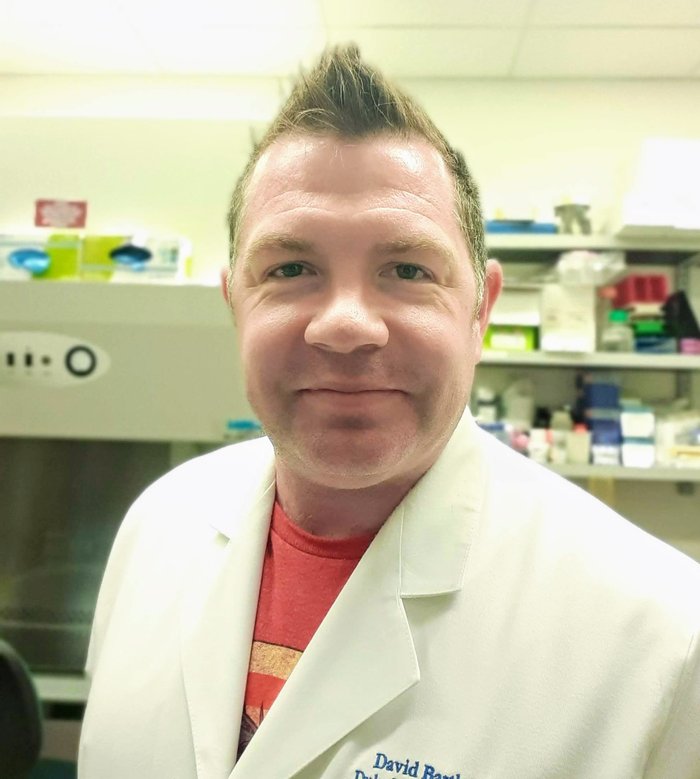A new approach to a treating fatigue in people with chronic lymphocytic leukaemia (CLL)
Many people with chronic lymphocytic leukaemia (CLL) experience fatigue, a type of extreme tiredness. Dr Bartlett is researching to see if a home-based exercise and diet program can reduce fatigue and improve quality of life for people with this disease.

Dr David Bartlett
The challenge
CLL is a type of blood cancer that affects white blood cells called lymphocytes. People with CLL often experience fatigue, a type of extreme tiredness that comes on quickly and can take time to go away. Researchers believe this may be because the cancer cells use the energy that the body’s muscles and heart need to function properly. Extreme tiredness can be made worse though treatments such as chemotherapy. Changes to lifestyle behaviours such as exercise and diet have been shown helped reduce fatigue in people with other types of cancers, and researchers they could also help people with CLL. As many people with CLL tend to be older and less physically active more research is needed to see if changing these behaviours may be helpful for them too. Currently there aren’t many ways to help people with CLL to effectively manage their fatigue and so new strategies are desperately needed.
The project
In this pilot project, Dr Bartlett and his team at the University of Surrey will test whether a personalised, home-based program focusing on exercise and diet can reduce fatigue and improve quality of life. Over 12 weeks, 60 adults with CLL will receive tailored support from exercise specialists based on their own physical needs and dietary habits. The program will be delivered online and will look to help improve fatigue and quality of life for people with CLL by improving overall fitness, strength and diet. Researchers will assess fatigue before, during and after to see if there are any noticeable changes. The goal is to find out whether people with CLL are willing and able to take part in this type of online exercise and diet program, and if it leads to real improvements in how tired they feel.
The future
If successful, this research could offer a new way to help people with CLL feel better, stay stronger, and be more prepared for any future treatments. The researchers hope to show that personalised diet and exercise plans can be both practical and effective in helping reduce fatigue in people with CLL. In the long term, they aim to develop an AI-powered tool that delivers personalised support to help anyone with blood cancer manage their fatigue and symptoms, improving quality of life during and after treatment.
Funding
This project is part of the innovative pilot grant round.
